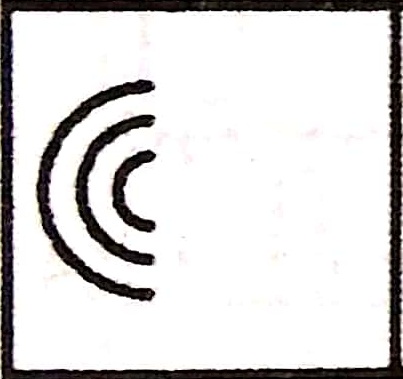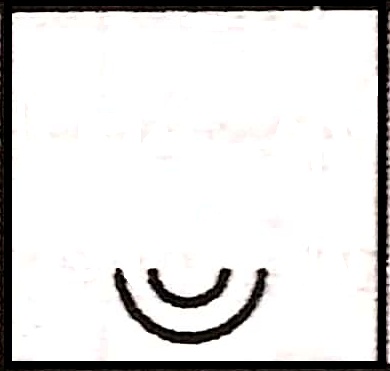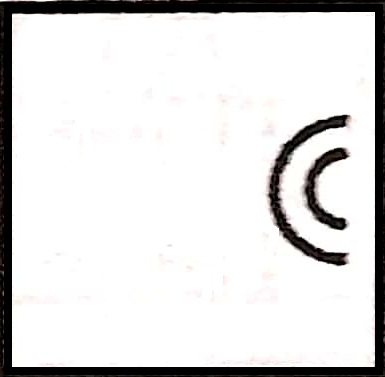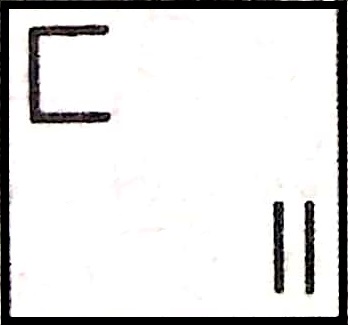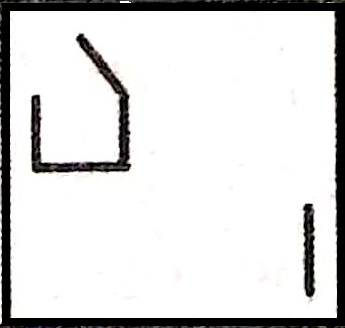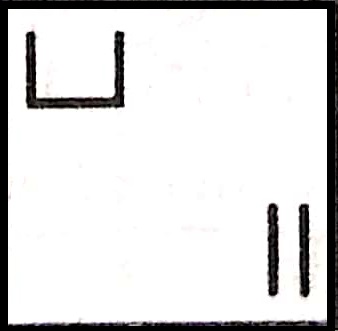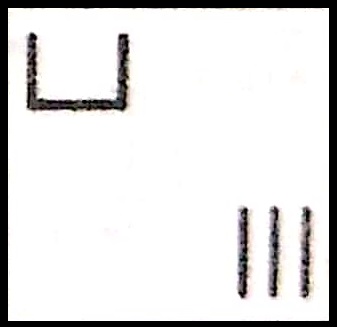Non Verbal Classification Same Characteristic


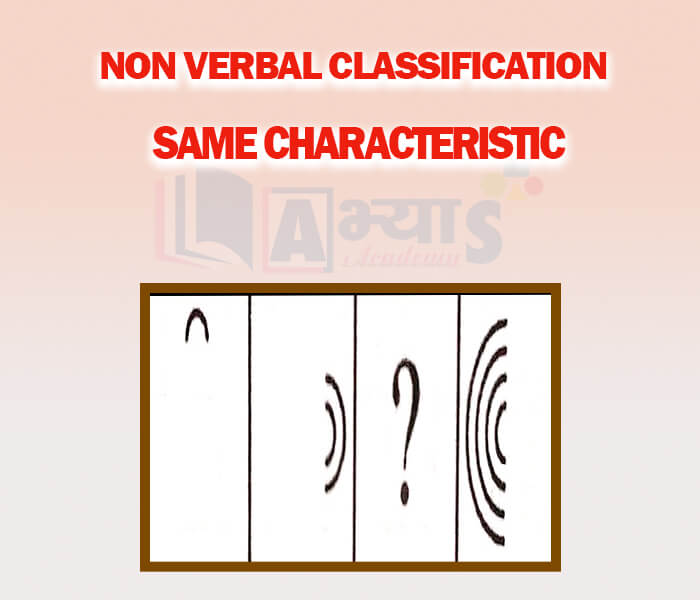
Non Verbal Classification - Same Characteristic
Classification: In Classification, we deal with problems of identifying the figure which belongs to the classification. In such problems, we are given a set of figures, such that one of them has similar characteristics or features. We are required to select the figure which differs from the other figures in the given set. Several other types of problems based upon classification are also discussed in details in this chapter.
Choosing the Same Characteristic Element: In such type of problems, we are given a set of five/four figures, forming the Problem Set followed by four figures as options. The Problem figures have some common characteristics. The candidate will be asked to select the figures from the options which also exhibits the same characteristics (or to select the figure which does not exhibit these characteristics) from amongst the Answer figures, rest of which would be exhibiting those characteristics.
Illustration: In the following question, problem figures are given with a question mark. Identify the option which shows similar Characteristics/ properties as shown by the Problem figures.

|
A |
B |
C |
D |
Answer : C
Solution : On analysing the problem figures we see that Number of semicircles increased by one and move to next side of square in clockwise direction
So the third figure should have three arcs and should be rotated to the third side of the square in clockwise direction. The figure in option B satisfies the rule. Hence the answer is C.
Illustration: In the following question, problem figures are given with a question mark. Identify the option which shows similar Characteristics/ properties as shown by the Problem figures.

|
A |
B |
C |
D |
Answer : C
Explanation : Thus, answer is C.
Solution : On analysing the problem figures we see that one line is removed from the top figure and rotate 90 degree in anti clockwise direction. The removed line is added in the lower right portion.
The third figure should have a figure with one line removed as compared to the second figure and rotated by 90 degree in anti clockwise direction and the line has been added in the lower right corner, so it should have two lines. The figure in option C satisfies the rule. Hence the answer is C.
There are certain common characteristics / properties between the two Problem figures. Select a figure from amongst the Answer Figures which shows similar Characteristics/ properties as shown by the Problem figures.
| |||
| Right Option : A | |||
| View Explanation | |||
There are certain common characteristics / properties between the two Problem figures. Select a figure from amongst the Answer Figures which shows similar Characteristics/ properties as shown by the Problem figures.
| |||
| Right Option : B | |||
| View Explanation | |||
There are certain common characteristics / properties between the two Problem figures. Select a figure from amongst the Answer Figures which shows similar Characteristics/ properties as shown by the Problem figures.
| |||
| Right Option : D | |||
| View Explanation | |||
Students / Parents Reviews [10]
Abhyas is a complete education Institute. Here extreme care is taken by teacher with the help of regular exam. Extra classes also conducted by the institute, if the student is weak.

Om Umang
10thIt was a good experience with Abhyas Academy. I even faced problems in starting but slowly and steadily overcomed. Especially reasoning classes helped me a lot.

Cheshta
10thAbout Abhyas metholodology the teachers are very nice and hardworking toward students.The Centre Head Mrs Anu Sethi is also a brilliant teacher.Abhyas has taught me how to overcome problems and has always taken my doubts and suppoeted me.

Shreya Shrivastava
8thMy experience with Abhyas academy is very good. I did not think that my every subject coming here will be so strong. The main thing is that the online tests had made me learn here more things.

Hiya Gupta
8thI have spent a wonderful time in Abhyas academy. It has made my reasoning more apt, English more stronger and Maths an interesting subject for me. It has given me a habbit of self studying

Yatharthi Sharma
10thIt was good as the experience because as we had come here we had been improved in a such envirnment created here.Extra is taught which is beneficial for future.

Eshan Arora
8thMy experience was very good with Abhyas academy. I am studying here from 6th class and I am satisfied by its results in my life. I improved a lot here ahead of school syllabus.

Ayan Ghosh
8thA marvelous experience with Abhyas. I am glad to share that my ward has achieved more than enough at the Ambala ABHYAS centre. Years have passed on and more and more he has gained. May the centre flourish and develop day by day by the grace of God.

Archit Segal
7thIt has a great methodology. Students here can get analysis to their test quickly.We can learn easily through PPTs and the testing methods are good. We know that where we have to practice

Barkha Arora
10thMy experience with Abhyas is very good. I have learnt many things here like vedic maths and reasoning also. Teachers here first take our doubts and then there are assignments to verify our weak points.

